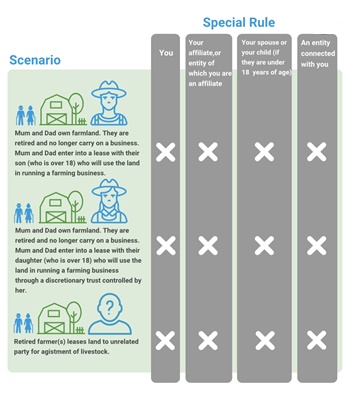In July 2019 new legislation was introduced to Parliament to limit the ability to claim a tax deduction for the holding costs on land. The legislation was passed by the House of Representatives and is now before the Senate seeking approval.
While a time frame for the expected decision has not yet been advised, if passed, the new legislation will limit a taxpayers ability to claim a tax deduction for the expenses incurred in holding vacant land on the basis they were holding the land for a taxable purpose (eg future development of rental property).
Essentially, the proposed legislation will limit deductions for expenses incurred in holding vacant land unless the land is used or held for use in carrying on a business, either by the taxpayer or a closely related entity.
If the taxpayer uses or holds ready for use, the land for the derivation of passive income, then the legislation in its current form will deny the taxpayer a deduction for any expenses incurred in earning that assessable income.
These changes will apply to any losses or outgoings incurred on or after 1 July 2019 (regardless of whether the applicable land was acquired before 1 July 2019).
There are limited exemptions to the proposed change, the amendments will not apply to corporate tax entities, superannuation plans (other than self-managed superannuation funds), managed investment trust or public unit trusts. The amendments will also not apply to unit trusts or partnerships of which the members are entities of the aforementioned types.
In the Explanatory Memorandum (EM) to the Bill, Treasury acknowledged that leasing of land to related parties in the agricultural sector was common and stated the inclusion of a special rule for related parties would ensure the amendments would not adversely impact primary producers.
However, the special rule does not appear to adequately cover all common leasing arrangements within farming families. Many primary producers or holders of farmland may find they will be denied a deduction for expenses incurred in holding the land (and earning assessable leasing income) purely because the particulars of their family structure do not fall within the special rule.
The EM is also silent on situations where a primary producer or other landholder leases vacant land for a taxable purpose to an unrelated party. In this scenario, taxpayers who lease vacant land for a taxable purpose, say to a neighbouring farmer to use for crops or agistment, may be denied a deduction for any expenses incurred in earning the assessable lease income, unless they can demonstrate they are carrying on a business of leasing land. If the land is held purely for derivation of passive income, the taxpayer will be denied a deduction for losses or outgoings incurred in earning that income.
Common negative gearing of vacant land scenarios that may fall outside the ‘special rule’ include:

Author
Kim Jay




